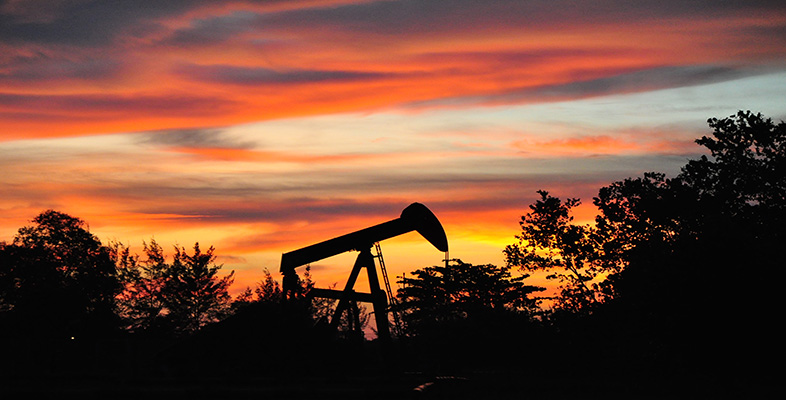9 Conclusion
Many environmentalists argue that we should be attempting to change individuals' behaviour rather than increase the efficiency of transport technologies. This implies a dramatic reduction in the use of the most energy-intensive modes of transport - car and air travel. But many individuals and politicians baulk at the prospect of 'turning the clock back' to a level of mobility considerably less than that we currently enjoy. Car use is now deeply entrenched in our society and economy, however environmentally problematic that may be.
There are clearly two extreme views here. One might be that we can solve the issue of anthropogenic global warming if we get the technology right. The other extreme would be to argue that only by changing our transport habits can we hope to begin to reduce emissions. You will have to decide where you stand on this issue. Perhaps, like the author, you will feel that the truth lies somewhere between these two extremes.
Activity 2 The peak oil debate
The estimated time for this activity is 40 minutes.
While studying this course you have explored some important trends in oil production and consumption in the United States, China and the Middle East. For many commentators, these trends are not as important as the bigger question: is overall global oil production about to decline? Many argue that we are at, or very close to, the point when the world's production of oil will peak and start to fall (Section 5). This idea, known as the 'Peak Oil hypothesis', is a controversial one and in this activity you will explore the views of two commentators from opposite sides of the debate.
You will listen to short extracts from interviews with the two. You should bear in mind that these are extracts rather than the full interviews.
If you have time, you may wish to listen to the whole of each extract through once, and then read the questions before listening to the extract again. Use the pause button while noting down your answers to each question.
Part I
The first commentator is Dieter Helm, Professor of Energy Policy at the University of Oxford, who specialises in issues related to energy and the environment. He doubts the validity of what he calls 'Peak Oil' hypotheses.
Listen to the 5-minute extract of the interview and then answer the following questions.

Transcript: Audio 1
Question
- a.Dieter Helm outlines three related, competing Peak Oil hypotheses. What are they and what do they have in common?
- b.He argues that it is not the supply of oil that is limited but our technologies. Why does he feel that technology will improve?
- c.What are the two key ways in which he thinks new technologies can increase supply?
Answer
- a.The three competing Peak Oil hypotheses he describes are:
- the Earth's oil resources are physically limited
- oil that we need to use now is controlled by a small number of countries, which may restrict supplies for political reasons
- inevitably demand for oil will rise so fast that supply will not keep up - making the price of oil soar.
- b.He argues that as the price of oil rises, investment in new technologies becomes economic.
- c.The two key areas in which he thinks technology will improve are:
- getting more out of existing conventional wells, where we currently leave up to 50% of the oil in the ground
- extracting unconventional oils such as shale oils.
Part II
Shaun Chamberlin is an environmental activist, author and policy advisor. He was a pioneer of the Transition Towns movement and sits on the council of the campaigning organisation World Development Movement. He has also served as an advisor to the UK Department of Energy and Climate Change and co-authored the All Party Parliamentary Group on Peak Oil's 2011 report into energy rationing. He argues that Peak Oil is a reality now.
Listen to the 5-minute extract of the interview and then answer the following questions.

Transcript: Audio 2
Question
- a.Dieter Helm outlined three related Peak Oil hypotheses. Which sort of Peak Oil arguments does Shaun Chamberlin put forward and what sort of evidence does he draw on?
- b.Why does he argue that 'It's not the size of the tank that matters, it's the size of the tap'?
Answer
- a.Shaun Chamberlin's arguments largely focus on the physical limitations of oil supply - the evidence he draws on are past levels of oil production.
- b.He feels that Peak Oil issues are related to the rate at which oil is extracted from the ground, rather than how much is stored there. He argues, for instance, that the extraction of oil from oil shales is a very slow process - limiting the rate at which oil can be produced from this source.
If you are interested to read more about Shaun Chamberlin's views, he writes at www.darkoptimism.org [Tip: hold Ctrl and click a link to open it in a new tab. (Hide tip)] .
Part III
Question
Having listened to the two commentators, and read this course, where do you stand on the Peak Oil question? From what you know, do you think it is a real issue? In your opinion does it affect the question of whether or not we should be trying to live without oil? (Answer in about 150 words)
Answer
Your answer here will clearly depend on your point of view. Here is one possible answer, though you may take a different stance.
Supplies of conventional oil are likely to peak in the near future, but if we are prepared to invest in expensive technologies to extract unconventional oil like shale oil, we will be able to keep supplies going for a very long time. This will mean that the prices of oil products are likely to remain high. The extraction of unconventional oil is likely to have environmental consequences, for example the extraction of shale oil is a very dirty process. The question of whether or not oil supplies will peak is not relevant when we consider the issue of anthropogenic global warming - we need to find ways to supply our energy needs without burning fossil fuels. For this reason the question of if we can live without oil and other fossil fuels is important, whether or not supplies are about to decline.
